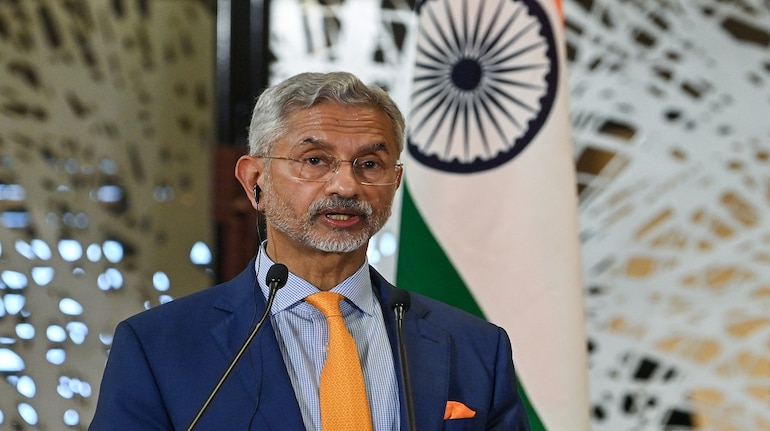



The South Asian Association for Regional Cooperation (SAARC) has been unable to progress because of one member’s involvement in "cross-border terrorism", stated External Affairs Minister S Jaishankar on Saturday. While he did not explicitly name the country, his remarks came ahead of his upcoming visit to Pakistan in mid-October for a crucial Shanghai Cooperation Organisation (SCO) meeting in Islamabad.
The SAARC, comprising India, Afghanistan, Bangladesh, Bhutan, the Maldives, Nepal, Pakistan, and Sri Lanka, has not convened a summit since the last one held in Kathmandu in 2014. Since 2016, the organisation has been largely inactive.
"SAARC is currently at a standstill. We haven’t held a meeting for a simple reason—one member continues to engage in cross-border terrorism, particularly targeting one or more of its fellow members," Jaishankar remarked at an event in New Delhi.
"Terrorism is something which is unacceptable and despite a global view of it, if one of our neighbours continues to do it, then there must be a pause to it... it cannot be business as usual in SAARC. That's the reason why the SAARC meeting has not happened in recent years," underscored the EAM.
He elaborated that continuing regional cooperation under such circumstances would imply "normalising" terrorism. "We made the decision that this cannot be ignored," he said, stressing that terrorism remains unacceptable. "As long as this behaviour persists from one of our neighbors, SAARC cannot function as usual."
Despite SAARC’s impasse, Jaishankar pointed out that regional cooperation in South Asia has advanced significantly in recent years.
"But, because SAARC meetings have not happened, does not mean the regional activities have stopped, he stated, further adding, "In fact, I would argue that in the last five-six years, we have seen far more regional integration in the Indian subcontinent than we have seen since the partition of India".
The Union Minister also highlighted the development of infrastructure such as railway lines, roads, and electricity grids connecting India with neighboring countries like Bangladesh, Nepal, Bhutan, Myanmar, and Sri Lanka. These projects are part of India’s 'Neighbourhood First' policy, he explained.
He noted, "If you look today with Bangladesh, with Nepal, with Bhutan, with Myanmar, with Sri Lanka... you have railway lines being restored, roads being rebuilt, electricity grids being built... you have ferries, you have fertiliser supplies... and then medical visas. So, I would actually say that what is happening in the neighbourhood, it is happening because we are espousing this policy called 'Neighbourhood First'," he said.
In his address during the Sardar Patel Memorial Lecture, Jaishankar also touched on the evolving India-China relationship. He noted that both countries find themselves at a critical juncture, similar to the geopolitical complexities during Patel's era. Referring to the ongoing border tensions in eastern Ladakh, Jaishankar said, "Today, "our ties are again at cross-roads". The present situation does not serve the interests of either nation, he said, referring to the lingering border row in eastern Ladakh".
He suggested that a way forward could be found through "mutual respect, mutual sensitivity, and mutual interests," underscoring that the rise of Asia hinges on a positive dynamic between India and China.
"There is a way forward. And that is by reinstating peace and tranquility in the border areas, respecting the LAC and not seeking to change the status quo. Beyond that, the three mutuals -- mutual respect, mutual sensitivity and mutual interests - offer a credible pathway. After all, the rise of Asia can only happen when India and China have a positive dynamic," he added.
Praising Sardar Vallabhbhai Patel, Jaishankar highlighted Patel's pivotal role in rebuilding India after colonial rule and navigating the global order in the post-World War II period. "Understanding the larger picture and making the right decisions was a challenge," Jaishankar said, commending Patel’s enduring legacy.
"During the end of the Sardar's life, India and China were both re-emerging in the global order as modern nation states. The complexities of their relationship were just beginning to be visible," Jaishankar noted.
"But we must not forget that he was doing so at a time when the international order was being reshaped after the Second World War, and as decolonialisation just began. Reading the big picture right and making our calculations was not easy," said the minister.
(With agency inputs)Discover the latest Business News, Sensex, and Nifty updates. Obtain Personal Finance insights, tax queries, and expert opinions on Moneycontrol or download the Moneycontrol App to stay updated!
Find the best of Al News in one place, specially curated for you every weekend.
Stay on top of the latest tech trends and biggest startup news.